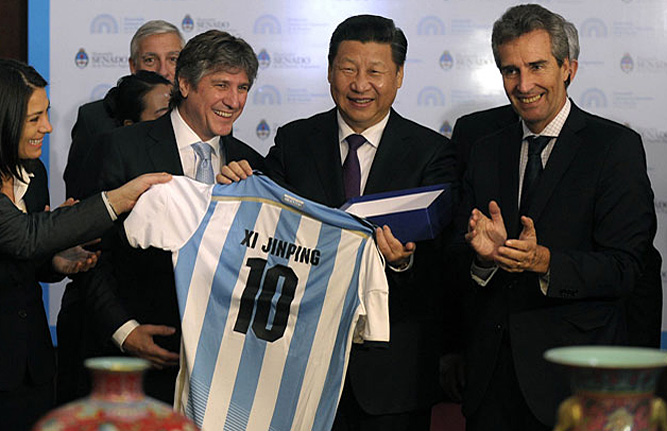Ebola survivor: No time to waste as Obama ups aid
(Agencies) Updated: 2014-09-17 16:03"The response to Ebola continues to fall dangerously behind and too many lives are being lost," said Brice de le Vingne, the group's director of operations. "We need more countries to stand up, we need greater concrete action on the ground, and we need it now."
Nearly 5,000 people have become ill from Ebola in Liberia, Sierra Leone, Guinea, Nigeria and Senegal since it was first recognized in March. WHO says it anticipates that figure could rise to more than 20,000 and end up costing nearly $1 billion to contain.
The UN Security Council will hold an emergency meeting Thursday on the crisis, and the head of the United Nations said the General Assembly will follow up with a high-level meeting next week as the world body "is taking the lead now" on the international fight.
UN Secretary-General Ban Ki-moon welcomed Obama's plan, his spokesman said in a statement, and called on the international community "to be as bold and courageous in its response as those who are on the front lines fighting this disease."
At a packed Senate hearing, the CDC's Dr. Beth Bell told senators the outbreak is "ferocious and spreading exponentially."
"If we do not act now to stop Ebola, we could be dealing with it for years to come," she warned.
Congress still must vote on an Obama administration request for $88 million more to help the Ebola fight, including funding CDC work in West Africa through December and speeding development of experimental treatments and vaccines.
The US already has spent more than $100 million fighting the outbreak. Obama administration officials said some of the costs of the new military response would be covered by $500 million in overseas contingency operations, such as the war in Afghanistan, that the Pentagon already has asked Congress to redirect for West Africa and for humanitarian assistance in Iraq. Late Tuesday, the Obama administration submitted a request to reprogram another $500 million in Pentagon money for the Ebola effort.
Republica Sen. Lamar Alexander said urgent action was needed. "We must take the dangerous, deadly threat of the Ebola epidemic as seriously as we take ISIS," he said, referring to the extremist group in Syria and Iraq.
White House press secretary Josh Earnest said the 3,000 troops would not provide direct care to Ebola patients. In addition to delivering the 17 treatment facilities, they will help train as many as 500 local health care workers a week. Among other initiatives the military will:
_Set up a headquarters in Monrovia, Liberia, led by Maj. Gen. Darryl Williams, head of US Army Africa.
_Build a regional transportation and staging base in Senegal, where the US will help coordinate the contributions of other allies and partners.
_Provide home health care kits to hundreds of thousands of households, designed to help healthy people caring for Ebola-stricken family members. That includes 50,000 that the US Agency for International Development will deliver to Liberia this week.
_Carrying out a home- and community-based campaign to train local populations on how to handle exposed patients.
In Monrovia, Boima Folley runs a sport materials shop and said he'd welcome the US military response.
"We have been praying to get the disease wiped out of our country, so if the coming of US troops will help us get that done, we should be happy," he said.
"The soldiers don't have to have medical backgrounds. They can help with logistics," he added.
- Medical team to fight Ebola in Sierra Leone
- US to assign 3,000 troops to fight Ebola
- WHO welcomes China's contribution of mobile laboratory to west africa against Ebola
- US to assign 3,000 from US military to fight Ebola
- UN seeks more health workers to fight Ebola
- China offers new aid for combating Ebola









